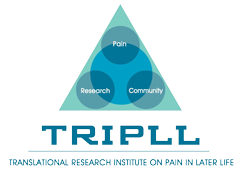High prevalence of multimorbidity and polypharmacy in elderly patients with chronic pain receiving home care are associated with multiple medication-related problems
Aim: To measure the extent of polypharmacy, multimorbidity and potential medication-related problems in elderly patients with chronic pain receiving home care.
Methods: Data of 355 patients aged ≥65 years affected by chronic pain in home care who were enrolled in the ACHE study in Berlin, Germany, were analyzed. History of chronic diseases, diagnoses, medications including self-medication were collected for all patients. Multimorbidity was defined as the presence of ≥2 chronic conditions and levels were classified by the Charlson-Comorbidity-Index. Polypharmacy was defined as the concomitant intake of ≥5 medications. Potentially clinically relevant drug interactions were identified and evaluated; underuse of potentially useful medications as well as overprescription were also assessed.
Results: More than half of the patients (55.4%) had moderate to severe comorbidity levels. The median number of prescribed drugs was 9 (range 0–25) and polypharmacy was detected in 89.5% of the patients. Almost half of them (49.3%) were affected by excessive polypharmacy (≥10 prescribed drugs). Polypharmacy and excessive polypharmacy occurred at all levels of comorbidity. We detected 184 potentially relevant drug interactions in 120/353 (34.0%) patients and rated 57 (31.0%) of them as severe. Underprescription of oral anticoagulants was detected in 32.3% of patients with atrial fibrillation whereas potential overprescription of loop diuretics was observed in 15.5% of patients.
Conclusion: Multimorbidity and polypharmacy are highly prevalent in elderly outpatients with chronic pain receiving home care. Medication-related problems that could impair safety of drug treatment in this population are resulting from potentially relevant drug interactions, overprescribing as well as underuse.
